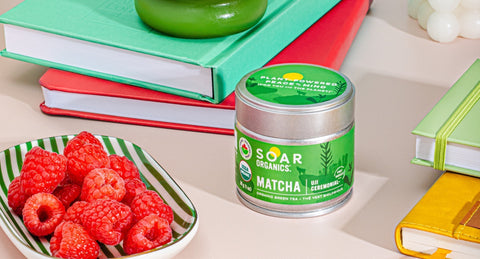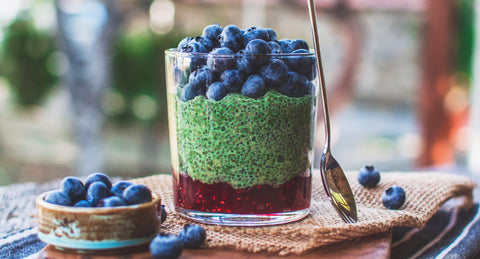Matcha, the vibrant green powdered tea celebrated for its earthy flavor and health benefits, has enthusiasts pondering an important question: Does matcha expire? In this informative post, we'll demystify the longevity of matcha and provide valuable tips on how to store it for extended freshness.
Does Matcha Have a Shelf Life?
Yes, like many consumables, matcha does have a shelf life. The vibrant green hue and delicate flavors of matcha are best experienced within 2-3 months after opening the original packaging, however that timeline can be extended (slightly) with optimal storage techniques. Over time, exposure to air, light, and moisture can compromise the quality of matcha, leading to changes in taste, color, and aroma.
Understanding Matcha Shelf Life: The Factors at Play
Several factors influence the shelf life of matcha:
- Oxidation: Exposure to air can lead to oxidation, causing matcha to lose its vibrant green color and freshness.
- Light: UV rays can accelerate the degradation of chlorophyll in matcha, contributing to color changes.
- Moisture: Matcha readily absorbs moisture, leading to clumping and a decline in quality.
- Temperature: Storing matcha in high temperatures can hasten deterioration.
How to Store Matcha for Maximum Freshness
To prolong the life and quality of your matcha, follow these storage tips:
- Airtight Container: Keep your matcha in an airtight container or pouch to minimize its exposure to air and prevent oxidation. Make sure the container is opaque to shield the matcha from light.
- Cool and Dark Storage: Keep your matcha in a cool, dark place. A pantry or cupboard away from direct sunlight and heat sources is ideal.
- Avoid Moisture: Moisture is matcha's foe. Ensure that the container and environment are dry to prevent clumping and maintain the powder's fine texture.
- Refrigeration: Refrigerating matcha can be beneficial, especially if you live in a humid climate. Just be sure to bring it to room temperature before use to prevent condensation.
- Minimal Exposure: Limit the time your matcha spends exposed to air. Seal the container tightly and promptly after each use to preserve its freshness.
Determining Matcha Quality: Signs of Decline
While matcha doesn't necessarily "expire" in the traditional sense, its quality can diminish over time. Signs that your matcha might be past its prime include a dull color, loss of aroma, and a flat or bitter taste. If you notice these changes, it may be time to consider replenishing your matcha supply for an optimal experience.
Final Thoughts
While matcha does have a shelf life, mindful storage practices can significantly extend its freshness. By protecting it from air, light, moisture, and excessive heat, you can ensure that your matcha retains its vibrant color and rich flavor for an indulgent and satisfying experience.
Now, armed with knowledge on matcha's longevity and storage secrets, you can confidently savor your matcha at its best, cup after cup. Cheers to the art of preserving and enjoying the finest matcha moments!
Note: The information provided in this blog post is based on general knowledge about matcha and may vary among different brands and producers.



